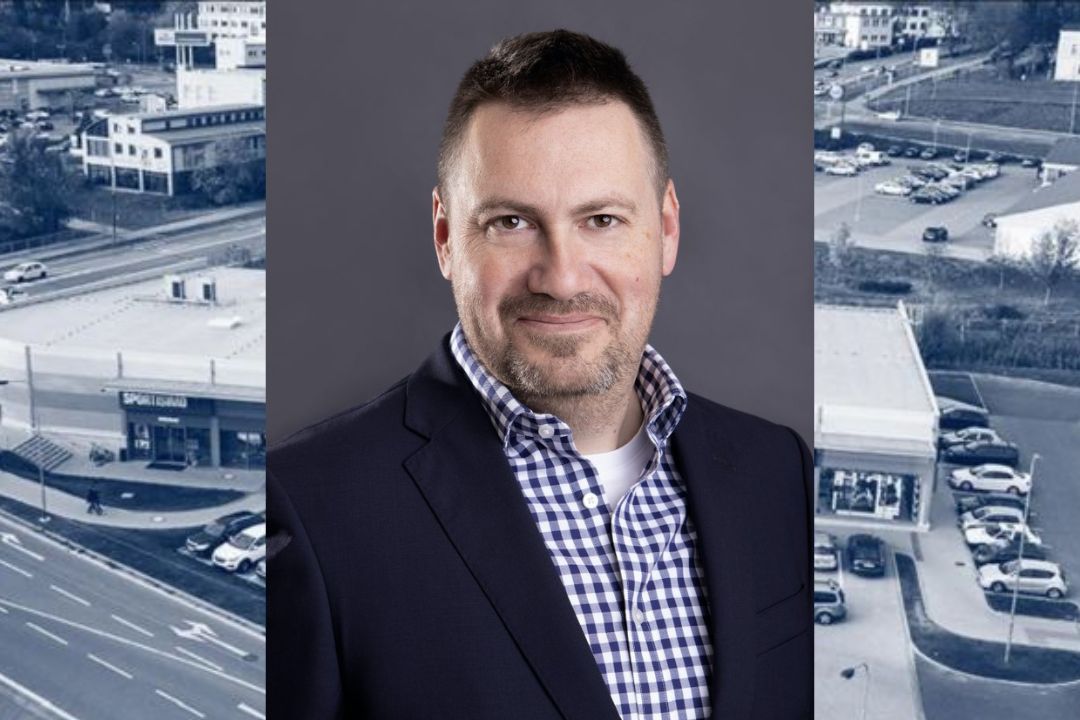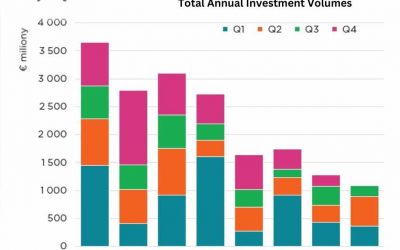Tell me about Realia’s investment strategy these days. Have you had to adjust to changing conditions?
We haven’t changed a thing since the beginning. At the beginning we decided we will buy completely occupied retail parks, and have no development in the fund. In practice, that means if we buy a park on Monday, on Tuesday we have cash flow from it.
We of course also focus on long lease agreements, and along with that we have long bank loans, usually five years. That’s why we were able to make a 15% return last year, because we have fixed interest rates. Our average interest rate on a fund level is 2.9%, all-in, and the next fixation of the loans is in about three years. So, from the point of view of the existing portfolio, we don’t really worry about what’s happening with interest rates.
What’s the breakdown of your income and your loans?
We make 60% of our income in euro and 40% in Czech koruna and it’s the same breakdown for our loans. The average interest rate for euros is 2.4% and the average for koruna is approximately 3.7%, so the mixed average is 2.9% for the whole fund.
Covid was arguably the ’break out’ moment for retail parks. Are they still popular, because investors are confident they could survive the next pandemic, or is it more now a more general confidence about them?
I’d say it’s more general. When we do new transactions or lease renegotiations, nobody talks about Covid anymore. I think Covid gave retail parks a real push and now everyone knows about them. Investors remember how durable this asset class was during Covid.
What are Realia’s targets?
We made an internal target to reach a portfolio value of at least CZK 3 billion. We’re halfway there at about CZK 1.6 billion. We are not in a hurry; we choose retail parks carefully. We prefer quality over quantity.
What are your incentives, as fund managers? Are you success-based or do you get paid for increasing the size of your assets under management?
Not for us. All our management including the founder have our own money in the fund. The way it works is first we have to deliver a 6% return on Czech income and 5% in euro. If the fund achieves that, then the rest of the profits are split in a defined way between fund investors, owner and managers. That means we’re highly motivated — not just to be big but that everything works properly in order to drive profits. There’s no direct management fee like the way the most of the funds do it.
Six percent is about what you can earn these days just by putting your money in a savings account. Are you worried about redemptions, and has it become tougher to raise new money from outside investors?
First, we treat our investment as a mid or long-term one. That means the minimum investment period is 4 years, whereas these high interest rates are probably just for this year and next year. We’re aiming of course for at least 6%, but if the fund exceeds that we split it with investors. So, I think they have reasons to put money in our fund and last year’s results confirm that.
But to answer your question, there’s definitely been an impact. More and more investors have been deciding to put money into the bank and look for the next opportunity. In terms of fund raising, it was definitely a bit of a complication. But that’s the same for all the funds.
Not all funds may not be in such a strong position in terms of debt. Do you expect to see opportunities to buy retail parks as some investors come under pressure?
We have seen opportunities over the last 12 months and I feel there is still an opportunity to get assets at a good price if the seller is under pressure.
How’s rent indexation working for you?
Lovely. It’s my favorite question. With inflation at 15%, it creates a lot of revenue. We’ve managed to transfer it all into the invoicing, even though we’d been thinking about trading a discount on inflation for lease prolongations.
Doesn’t that mean your tenants are able to increase their own revenues as well through price increases?
Some of them actually increased their prices prior to inflation, so they were pretty ready for the situation.
It must also mean you’re confident you could fill the space if some of your tenants couldn’t or wouldn’t accept it.
That’s the situation. I’m not saying the market is extremely easy. Some companies are hesitating about expansion right now, but we know some others who are looking to expand in the Czech market. So, we’re not very worried about re-leasing the space.
What’s the yield for retail parks at the moment?
Reports from real estate agencies say it’s 6.25% for prime yields for the first quarter. My assumption on the market level right now is around 6.5%.
Does that mean if there was one on sale for 6.5% you would consider buying it?
It would depend on the quality. For example, with our fund we have an average yield of 7.1% because we made good acquisitions directly to the fund. If there’s a quality product we can buy for between 6.5% and 7%. But if we are buying a retail park where there is no good initial financing that we could take over, then due to the current rates we are forced to act above 7%.
Also in ThePrime






